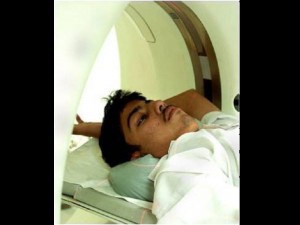WASHINGTON – Current or former heavy smokers screened with low-dose CT scans experienced a 20 percent reduction in lung cancer deaths compared to those screened using chest X-rays, a US study found Wednesday.
The National Lung Screening Trial, conducted starting in 2002 among 53,454 patients at a high risk of developing lung cancer, is the first to show that screening using low-dose celical computed tomography can reduce lung cancer mortality by identifying tumors early.
Lung cancer is the most lethal form of cancer in the United States, where more than 94 million current or former smokers are at elevated risk of the disease.
Patients have often not learned they had lung cancer until they experience symptoms of the disease, at which time the cancer is likely advanced and has less chances of getting cured.
Scientists compared mortality rates between those current and former heavy smokers between the ages of 55 and 74 who received three annual screenings using low-dose CT scans compared to those receiving chest X-rays for the nearly decade-long study.
Participants had smoked at least a pack a day for a minimum of 30 years, and were current or former smokers without symptoms, signs or history of lung cancer.
A helical CT (computed tomography) uses X-rays to obtain a multi-image scan of the chest as a whole, while a standard chest X-ray yields a single image of the entire chest where anatomic structures like on top of each other, and thus sometimes conceals a cancerous tumor in its early stages.
“The results of the study say that the time has come for considering LDCT screening for lung cancer,” said Constantine Gatsonis, a leading statistician in the trial and chair of biostatistics in the public health program at Brown University’s Warren Alpert Medical School.
“For the first time, we have a study that says, ‘Yes, you can actually reduce lung cancer mortality in heavy smokers via screening.’ This is tremendous.”
Study co-author Ilana Gareen noted that the screening’s impact should not be considered alone, but rather in tandem with diagnosis.
“The screening and subsequent diagnostic work-up will also impact patients’ emotional and physical health and will result in increased levels of health care utilization,” she said in a statement.
The research results, published online in the New England Journal of Medicine, provides a more detailed analysis of results first published in November 2010, along with additional data showing a stronger link between the use of the CT scans and a drop in mortality.
